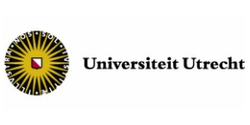Postdoctoral Researcher: Colonial History of Botanic Gardens
Updated: 24 Mar 2025
The Cultural History section of the Department of History and Art History, in collaboration with the Utrecht University Botanic Gardens, invites applications for a postdoctoral position on the colonial history of Botanic Gardens within the EU-HORIZON-funded project “Colonial Legacies of Universities: Materialities and New Collaborations” (COLUMN).
Your job
In recent years, universities and museums across Europe have become more attuned to their colonial entanglements and developed innovative approaches to reflect and deal with their colonial heritage, including the renaming of buildings and the decolonisation of curricula. Such steps have often, though not exclusively, been taken in collaboration with partners from former colonised countries. COLUMN brings together partners from the creative industries, seven European universities from the Coimbra network, and partner universities from across the globe to explore further how we can effectively decolonise university heritage. Through analyses of anthropological collections, botanical gardens, university campuses, and intangible heritage practices, COLUMN aims to develop policy recommendations and good practices for decolonial and inclusive collaborations around European university heritage.
You will join a team of scholars from the Netherlands, Italy and Suriname, which will explore Botanic Gardens as colonial university heritage. In the last decade, a variety of Botanic Gardens, like universities more broadly, have grappled with their colonial legacies and investigated to what extent they shaped and were shaped by European colonialism. Working with archival materials in the Netherlands and Suriname, you will conduct research into the colonial history of the Utrecht University Botanic Gardens and explore in what ways this institution has contributed to colonial science, including collecting practices and botanical explorations. You will also explore the possible relationship between the UU Botanic Gardens and private traders who introduced plants from all over the world into the early modern and modern Dutch homes. This includes plants from Suriname and South Africa, two areas from which many known house and office plants in the Netherlands and Europe more broadly originate.
Your research should primarily offer further insight into the colonial history of the Utrecht University Botanic Gardens. More broadly, the project will contribute to the key aim of developing policy recommendations and educational interventions on Botanic Gardens as colonial university heritage.
Requirements:
- A PhD degree in History or a related discipline;
- experience with archival research;
- experience and/or affinity with history of science and/or colonial history, including botanic gardens and the history of botany;
- an interest in exploring botanic collections in both the Netherlands and Suriname;
- the ambition to contribute to academic publications on the topic;
- a commitment to working in an international and interdisciplinary team;
- proficiency in both Dutch and English;
- experience and/or affinity with critical heritage studies is a plus.
Salary Benefits:
- A position for 12 months, with an extension of up to 30 months in total after positive evaluation, starting from 1 September 2025;
- a working week of 28 to 32 hours and a gross monthly salary of €4,537 in the case of full-time employment (salary scale 11 under the Collective Labour Agreement for Dutch Universities (CAO NU));
- 8% holiday pay and 8.3% year-end bonus;
- a pension scheme, partially paid parental leave and flexible terms of employment based on the CAO NU.
In addition to the terms of employment laid down in the CAO NU, Utrecht University has a number of schemes and facilities of its own for employees. This includes schemes facilitating professional development, leave schemes and schemes for sports and cultural activities, as well as discounts on software and other IT products. We also offer access to additional employee benefits through our Terms of Employment Options Model. In this way, we encourage our employees to continue to invest in their growth. For more information, please visit Working at Utrecht University.
32 hours per week
Drift 6

